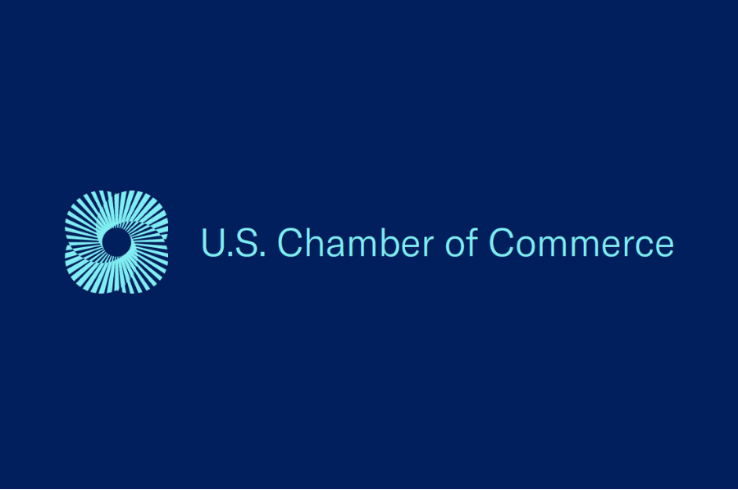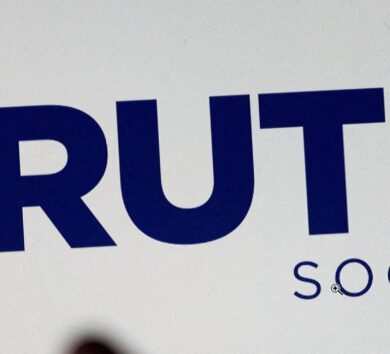

By Zoe Clarke
Here Zoe Clarke examines the ramifications of the Federal Trade Commission’s ban on non-compete clauses and what it will mean for American workers and alternative restrictive covenants in the second part of her in-depth analysis.
Resistance to the Federal Trade Commission (FTC) Ban on Non-Compete Agreements
Although the FTC rule was set to go into effect on September 4, 2024, there has been opposition to the rule. The FTC is facing backlash through litigation about the FTC’s authority or lack thereof to implement such an overly broad ban. Such backlash is likely to cause a delay in the date that the ban on non-compete clauses is expected to go into effect.
A. FTC Authority
Section 5 of the FTC Act, (15 USC 46) forbids “unfair or deceptive acts or practices in or affecting commerce.” Prior to the FTC’s final rule on the prohibition of non-compete clauses, the FTC exercised its authority (under section 5 of the FTC act) by bringing actions against employers based on the company’s use of non-compete clauses, which were accused of being an unfair method of competition.
The FTC exercised this power on a case-by-case basis and reviewed the use of the company’s non-compete clauses. Additionally, section § 6(g) of the FTC Act allows the FTC “to make rules and regulations to carry out the provisions of this Act.” Accordingly, the ban serves as an exercise of the FTC’s power under section 6(g) to regulate unfair competition on a large scale applied to all companies, rather than on a case-by-case basis as it was doing prior to the ban.
B. Facing Litigation

The FTC’s final rule on the prohibition of non-compete clauses is set to go into effect on September 4th, 2024. However, on April 23, 2024, Ryan LLC filed a complaint in the United States District Court for the Northern District of Texas against the FTC alleging several complaints. The allegations included in the complaint are as follows:
(1) the FTC lacks the authority under § 6(g) of the FTC Act to issue substantive rules at all, as opposed to procedural rules,
(2) the FTC “lacks the authority to ban non-competes by declaring them an unfair method of competition,” in part due to the sweeping, major reach of such a question,
(3) if the FTC Act is interpreted to authorize the agency to issue the rule here, it would be an unconstitutional delegation of authority;
(4) the FTC’s Commissioners lacked constitutional authority to vote for the rule because their statutory removal protections are incompatible with the President’s exercise of his executive power, and
(5) the FTC “acted arbitrarily and capriciously, in that the enforceability of non-compete clauses should be “determined on a case-by-case basis” under the rule of reason because they can be a “mutually beneficial, negotiated term of employment.”
Ryan has now amended its complaint. The amended complaint restates the five theories above, elaborating on the arbitrary and capricious claim. It then adds allegations that:
(6) the FTC acted arbitrarily and capriciously in failing to sufficiently consider alternative proposals, and
(7) the FTC acted contrary to law by retroactively invalidating non-compete clauses without individualized consideration like that envisioned by the Fifth Amendment.

Ryan, LLC asks for a declaration of its rights and an injunction against the FTC’s final rule if necessary to enforce its rights. Only one day later, on April 24th, 2024, the U.S. Chamber of Commerce filed suit in the United States District Court for the Eastern District of Texas Tyler Division against the FTC with similar allegations. The FTC filed a motion to apply the first-to-file motion, which would allow the case to take place in the forum in which it was first filed. On May 3rd, 2024, Judge Cambell Barker granted the FTC’s motion to apply the first-to-file doctrine, making the proceedings in the case stayed. Subsequently, on May 8th, 2024 the U.S. Chamber of Commerce moved to intervene in Ryan’s suit against the FTC. It is expected that several other companies have prepared or will also file suits against the FTC.[18] Even if the final rule withstands these legal challenges, its enforcement might be postponed or restricted.
C. Federal-State Preemption
The final rule will be applied federally; however, the rule does not interfere with more extensive employee protections provided by state laws, nor does it limit enforcement by state agencies or private parties under state regulations. Numerous states have acknowledged the harmful effects of noncompete clauses and have enacted laws that ban these agreements, except under very specific conditions. While the final rule explicitly overrides all state laws and legal precedents that allow non-compete agreements, it is not designed to replace the laws in states like California, Minnesota, North Dakota, and Oklahoma, which already prohibit or significantly limit the enforcement of non-competes, so long as the state law is more restrictive than the final rule. Additionally, it does not intend to override future state laws that will be protective to employees as it pertain to non-compete clauses.
II. History of Restrictive Covenants
Following the final rule, company owners are likely to voice their disapproval of the ban on non-competes due to the risk that the ban will have a negative impact on their businesses, however, several other protections exist that may be able to fill the gap that the ban on non-competes may have left. Restrictive covenants are contracts that restrict a party’s actions and in the context of business and employment law, the most common types are non-compete, garden leave, non-disclosure, and non-solicitation agreements. These covenants are generally included in employment agreements to limit an employee’s ability to start a competing business, work for a competitor, or disclose insider information. The FTC has spoken on restrictive covenants under the final rule and has given clarity and further information regarding what the ban means for other restrictive covenants outside of non-compete agreements.
A. Non-Disclosure Agreements
Non-disclosure agreements also known as confidentiality agreements are legally enforceable contracts designed to protect confidential information. The fundamental principle behind non-disclosure agreements remains unchanged: employees are prohibited from sharing any covered information with unauthorized individuals. The two major types of non-disclosure agreements include unilateral non-disclosure agreements and bilateral, also known as mutual non-disclosure agreements. As the name points out, unilateral non-disclosure agreements exist when one party is disclosing confidential information, and the other party is bound to an agreement to keep the information confidential.
Conversely, a mutual or bilateral non-disclosure agreement exists when both parties agree to keep information confidential. Many companies utilize these agreements to protect valuable information to foster an open work environment through deals, or both. For instance, during the merger of companies, valuable insider information is typically shared, and utilizing a non-disclosure agreement would allow for better negotiations and transparency. In addition, a non-disclosure agreement is typically utilized by employers to allow their employees access to trade secrets, pricing, business strategies, or business models. The non-disclosure agreement gives the employer the ability to share such valuable company assets without the fear of the employee taking the information and using it elsewhere. If an employee does share the confidential information laid out in a non-disclosure agreement, the employer has the right to take legal action under the agreement’s terms.
There are instances when a non-disclosure agreement may be unenforceable if it is not signed, properly drafted, or executed. Additionally, a non-disclosure agreement will be unenforceable if it commands an employee to do something illegal, such as being obligated by law to report something that the non-disclosure agreement has language that does not allow the employee to report. Furthermore, if the language in the agreement is seen as overly broad or poses too great of a restriction on the employee, a court may rule in favor of having the non-disclosure agreement unenforceable for being unfair. Finally, a non-disclosure agreement must have consideration, meaning that there is a bargained-for exchange, such as an exchange of promises – typically this would look like an employment contract in exchange for the employee keeping company secrets confidential.
B. Non-Solicitation Agreements
A non-solicitation agreement is a commitment by an employee to refrain from encouraging the employer’s customers, prospects, clients, or employees to leave the company and work with the employee or a competitor. This agreement typically takes effect for a limited period after the employment relationship concludes. While non-solicitation agreements cannot prevent customers, clients, or employees from leaving on their own accord, they aim to limit the influence a former employee may have on their decision to depart. These agreements are particularly valuable to employers as a means of safeguarding the company’s client base and workforce, helping to prevent former employees from enticing clients or colleagues to join a competing company.
Some states have found non-solicitation agreements to be unenforceable in a court of law due to the restraint on employee mobility and competition. For example, the California Supreme Court ruled that non-solicitation agreements that restrict former employees from soliciting their former employer’s customers are generally void and unenforceable under California law, as they violate the state’s public policy favouring open competition and employee mobility. However, outside of this example, non-solicitation agreements are typically enforced so long as they meet certain requirements. An employer must have a legitimate business reason, such as safeguarding valuable customer lists, trade secrets, or preventing the loss of key employees with specialized skills. To justify a non-solicitation agreement, the customer list must be a protected asset, built through significant investment and containing non-public information.
If the customer details are easily accessible, like in a phone book, courts are unlikely to uphold its protection. The agreements cannot stop employees or clients from voluntarily leaving. Employees can join competitors and clients can switch businesses unless the departing employee improperly solicits them or misuses confidential information.
C. Garden Leave Agreements
The garden leave agreement was adopted in Massachusetts starting in mid-2018 (the first state in the U.S. to pass a garden leave clause into law), however, it is mainly utilized in the U.K., Australia, and New Zealand. A garden leave agreement is a restrictive employment contract clause that is enforced when an employee is resigning or terminated from a company and is required to stay away from work during their notice period while still receiving their regular salary and benefits. This helps the company protect sensitive information and client relationships by keeping the employee out of the workplace but still under contract. While the leave is in effect, employees are prohibited from returning to their original place of work or any other place of work. The idea is that the garden leave will aid in prohibiting an employee from taking exclusive company information to another company. Employees are generally barred from entering the office, accessing sensitive documents, or interacting with specified co-employees.
This provision can be integrated into different employee-related documents, including offer letters, employment contracts, bonus agreements, separation deals, or non-compete clauses. It can act as an alternative to or complement traditional non-compete terms or other restrictive conditions. From the perspective of an employer, garden leave agreements can seem expensive because the employee is still getting paid and often not continuing to work. However, the protection that is offered from the garden leave may make the expense worth including the clause in an employment contract. Although classified differently than a non-compete agreement, a garden leave clause can help prevent an employee from working elsewhere for at least the duration of the garden leave agreement, therefore having the same effects. On the other hand, from the perspective of an employee, the agreement can seem restrictive in nature due to the fact that the employee has to make themselves available to cooperate with their employer’s requests and cannot obtain new employment.[ However, as previously stated this restriction and seemingly forced stagnant period of time is compensated as though they were still employed- making the garden leave agreement more attractive.
III. Navigating Around the Ban: Employer Practices
Following the final rule, employers are now obligated to inform workers who are subject to an existing non-compete agreement, and who are not senior executives, that the agreement will no longer be enforceable in the future. This notification must be clearly and prominently provided by the effective date. Various methods can be used to deliver this notice, such as delivering it directly to the worker, sending it by mail to the worker’s last known personal address, emailing it to an address associated with the worker, or texting it to a mobile number registered to the worker. Employers may be excused from this notification requirement if they lack records of the worker’s personal address, email, or mobile number.
The FTC’s final rule, prohibiting non-compete clauses retroactively, puts quite the burden on employers to adjust existing agreements with employees that include non-compete clauses and ensure that the employment agreements are compliant with the ban. With this in mind, it is important to note that the ban does not mean that all restrictive covenants are prohibited. In fact, employment agreements with several restrictive covenants, other than non-compete clauses can be reviewed for compliance, and if severable, may remain in the employment agreement.
A. FTC Ruling on Other Restrictive Covenants
Under the FTC final rule, employers will still have the ability to protect trade secrets under existing state and federal laws. However, the new rule could severely impact trade secret protection for several reasons. Firstly, nullifying non-compete agreements would remove an important contractual safeguard for both trade secrets and confidential information that might not meet the criteria for trade secrets. Secondly, non-compete clauses are essential for preventing employees from using proprietary information to gain an unfair competitive edge. While detecting trade secret theft is often difficult, the enforcement of non-compete agreements serves as a preventative measure. Generally speaking, the FTC deemed garden leave, non-disclosure, and non-solicitation provisions do not fall under the definition of non-compete clauses under the final rule so long as the provisions do not function as a method to stop someone from seeking employment elsewhere. The intent of the previously listed provisions will be reviewed on an individual basis to determine if the provisions essentially function as a non-compete agreement.
According to the FTC’s Supplemental Information on the rule, under § 910.1, a non-disclosure agreement would not qualify as a non-compete if its limitations on disclosure don’t cover information that: (1) derives from the employee’s general training, knowledge, skill, or experience, acquired either on the job or elsewhere; or (2) is readily accessible to other employers or the general public. Therefore, non-disclosure agreements are not categorically prohibited under the FTC’s final rule, however, if the non-disclosure agreement is too restrictive in nature it may fall into the broad category of non-competes that is explicitly banned by the FTC. An employer may run into this issue if the non-disclosure agreement is overly broad and places heavy restrictions on the employee’s ability to share information necessary to function in similar employment.
The FTC states that non-solicitation agreements typically are not classified as non-compete clauses under the final rule since they limit who a former employee can contact but don’t inherently stop them from finding new employment or launching a business. Nonetheless, such agreements can be considered non-compete clauses under § 910.1 if they effectively hinder the employee from pursuing other job opportunities or starting a new business after their employment ends.
The FTC observes that an agreement where the employee remains on the payroll and continues to receive their full annual compensation and benefits proportionately does not fall under the definition of a non-compete clause. This is because it doesn’t impose restrictions after employment ends. Rather, the employee is still considered employed, although their job responsibilities or access to coworkers and the workplace might be greatly reduced or completely eliminated. Consequently, garden leave agreements are not categorically prohibited under the FTC’s final rule.
Although restrictive covenants are crucial for safeguarding business interests, they must be carefully balanced with employees’ rights to job mobility and fair employment opportunities. The FTC’s proposed ban on noncompete agreements highlights an increasing focus on preserving worker freedom. As employers adapt to this evolving framework, they need to ensure that any alternative restrictive covenants are equitable, reasonable, and compliant with legal standards.
B. Expected Trend on Alternative Restrictive Covenants to Protect Trade Secrets
The FTC’s recent prohibition on non-compete agreements necessitates that employers adjust their approaches to safeguarding trade secrets or important business data. Protecting trade secrets is often the driving force and influence behind non-compete agreements, which limits an employee’s ability to take the “secret sauce”, or intellectual property from one company to another. Information not protected from a non-disclosure or confidentiality agreement is typically protected through the non-compete agreement’s ability to stop an employee from using the company’s methods in another business, with either geographical or temporal limitations, or both. Yet, many employers frequently neglect trade secrets, a facet of intellectual property that is often underestimated. It is common for employers to overlook the fact that trade secrets constitute a valuable component of their intellectual property weaponry, offering a distinct competitive edge. Virtually any confidential information can qualify as a trade secret, as long as its value stems from not being widely known or easily discoverable by others. This encompasses a wide array of assets including technical insights, production methodologies, chemical formulations, recipes, specialized expertise, experimental findings, client databases, pricing structures, supplier details, strategic blueprints, financial and promotional data, and practically any other commercially advantageous proprietary data.
Due to the FTC’s final rule prohibiting non-compete agreements, an increase in alternative restrictive covenants is expected in employment contracts in order to protect a company’s proprietary information and the investment they make in hiring, training, and preparing employees. Non-disclosure agreements offer greater flexibility to employers than non-compete agreements because of the agreement’s ability to protect sensitive valuable information without restraining an employee from seeking other employment on the face of the non-disclosure agreement. This flexibility allows a company to be compliant with the FTC’s ban on non-competes while still under the protection of the non-disclosure agreement. Although a non-disclosure agreement is a great alternative to the FTC ban on non-compete agreements, employers should tread lightly on the broad definition that the FTC gives non-compete agreements. In other words, if the non-disclosure agreement is too expansive and essentially makes it difficult for an employee to seek alternative employment due to the large span of information needed to be confidential, then the non-disclosure agreement may be subject to scrutiny and litigation.
Comparatively, non-solicitation agreements may also be utilized to prohibit an employee from bringing other employees or clients with them when they go. Although a restriction cannot be put on employees from obtaining new employment in the same field, this does not extend to an employee also recruiting other employees and clients to join them on their new business ventures. If utilized strategically, non-solicitations may be an innovative way for employers to safeguard their existing employees and clients from recruitment. However, if the non-solicitation agreement is written too broadly, it may be construed as an attempt to restrain an employee from a new business endeavor which runs the risk of the agreement being construed as a non-compete under the FTC’s definition, likely leading to litigation or legal challenges. Furthermore, as clarified by the FTC explicitly, garden leave agreements are allowed and are likely to not be misconstrued as a non-compete due to their generous nature of compensating employees and not having future employment restrictions on employees. Conclusively, employers can expect to avoid legal challenges or litigation as it pertains to garden leave agreements falling under the FTC’s definition of non-competes. Utilizing alternative restrictive employment covenants will provide for a mutually beneficial employer-employee relationship and ultimately foster a compliant work environment under the FTC’s ban on non-compete.
C. Court Determination: Restrictive Covenant Use or Abuse
Non-compete clauses are designed to stop employees from moving to new employers and potentially sharing confidential information, which could give the new employer an unfair competitive edge. Consequently, companies are most at risk when it comes to highly skilled and well-compensated employees. Despite this, many businesses apply non-compete clauses across their entire workforce, including those who are not in high-skill or high-wage positions. This widespread use of non-competes can unfairly limit job mobility and career advancement for many workers and is essentially what prompted the FTC’s decision.

For example, Jimmy John’s was involved in a case in 2016 where non-compete clauses were seen to be abused. The company faced a lawsuit for mandating that minimum wage employees sign noncompete agreements, which blocked them from seeking jobs at other sandwich shops. This practice suggests excessive use of noncompete clauses that unjustly restrict job mobility for low-wage workers, limiting their ability to improve their employment conditions and wages. In comparison, a high-class chef at a top-rated restaurant may be subjected to a justified non-compete (before the ban) due to the chef’s earnings and possible secret recipes or cooking techniques. This comparison displays the likely analysis courts incorporated to determine if a non-compete agreement was being properly used, such as a method to maintain top secret information that attributes to the company’s individual success, or if the non-compete was abused, such as being applied to workers across the board in such a way that an employee is being limited from working at a competitive business.
Although the final rule has completely banned non-competes, business owners can expect a court to exercise a similar analysis on restrictive covenants to determine if they too are abusive or being utilized in such a way that was intended. Before the ban, most restrictive covenants were determined under state law because no federal law forbade any restrictive covenants. However, moving forward the use of restrictive covenants may be reviewed under both state law and federal law. The ban reminds business owners that although other restrictive covenants are not explicitly banned, they may still be deemed unlawful if the language resembles a non-compete agreement by limiting job competition and employee mobility.
Under state law, some states have analyzed specific restrictions that relate to duration and geographical scope. Geographical or durational scope that exceeds reasonable standards may deem a restrictive covenant to be invalid due to the lack of job opportunities and competition it places on workers. State courts will also scrutinize a restrictive covenant agreement to determine if there is important information being protected by the employer and whether the restrictive covenant is necessary in order to protect such important company information. These limitations aim to put a stop to abusive restrictive covenants, such as a non-disclosure agreement that has far-reaching restrictions on an employee that may act like a non-compete clause disguised as another restrictive covenant that is not explicitly prohibited. For example, a non-disclosure agreement may be deemed invalid if it is written in such a broad manner that the agreement, in practice prevents a worker from pursuing a job in the same field as the one the employee was previously employed in.
Under the final rule and from a federal law perspective, a similar court analysis will be done to ensure that companies are not now abusing other restrictive covenants outside of non-competes as a means of utilizing the same effect as a non-compete. A functional test was put in place to determine whether a restrictive covenant provision would fall into the category of a non-compete agreement. Two examples are given to describe the functional test:
A non-disclosure agreement between an employer and a worker that is written so broadly that it effectively precludes the worker from working in the same field after the conclusion of the worker’s employment with the employer.
A contractual term between an employer and a worker that requires the worker to pay the employer or a third-party entity for training costs if the worker’s employment terminates within a specified period, where the required payment is not reasonably related to the costs the employer incurred for training the worker.
With this understanding in mind, although an expected trend of increased restrictive covenants is expected, employers should be cautious of misusing restrictive covenants to avoid being non-compliant under the FTC final rule.
Conclusion
In conclusion, considering the potential implementation of the FTC’s new rule, employers should seize this opportunity to review existing restrictive covenants with their employees.
Aside from the narrow exception applied to existing non-compete agreements, for senior-level employees, employers are at risk of being non-compliant if the FTC ban on non-compete agreements survives current ongoing litigation.
Employers should follow updates on the FTC ban to determine if the rule will go forward, as non-compliance can be risky for a company and it may lead to backlash from employers, legal challenges, and a disruption in the workforce. To ensure compliance and a smooth transition for employees, employers should consider alternatives to non-compete agreements, such as non-solicitation agreements, non-disclosure agreements, and garden leave agreements to safeguard confidential information, maintain client relationships, and enhance employee retention. At first glance, the rule targets only non-compete agreements and does not prohibit other limitations such as confidentiality or non-solicitation clauses. However, the rule explicitly states that it also bans these other restrictive covenants if they serve the same purpose or have the same impact as non-compete clauses.
Employers are encouraged to adjust their practices to be prepared for the final rule going into effect on September 4, 2024, to avoid non-compliance with the rule. Employers should locate and make note of senior-level executives. Existing non-compete agreements for these executives may continue unaffected, and they are exempt from the mandatory notification requirement. In addition, employers should identify all current and former employees bound by non-compete agreements who must receive the mandated notice by the specified date. Finally, it is critical to monitor ongoing litigation pertaining to the FTC’s final rule which has the potential to delay or suspend the implementation of the rule.
Employers may carefully strategize and thoughtfully implement other restrictive covenants that are not explicitly banned under the final rule, ensuring that such covenants, such as non-disclosure agreements and non-solicitation agreements are not only current but also offer maximum protection. These restrictive covenants, including but not limited to garden leave agreements, non-disclosure agreements, and non-solicitation agreements are not prohibited under the FTC final rule and may be effectively utilized in efforts to protect a company’s proprietary information and trade secrets.
Garden leave agreements prevent an employee from returning to the workplace or starting a new job elsewhere while continuing to receive their compensation as though they were still employed. Non-disclosure agreements offer confidentiality in the workplace as it pertains to secret company information. Non-solicitation agreements prevent an employee from advertising a new workplace to clients and ex-co-employees from their previous employment. While there are benefits to utilizing these non-banned restrictive covenants, employers should be wary of the risk of falling into federal non-compliance.
Facially, the FTC final rule banning non-competes applies only to non-compete agreements, however, in practice employment restrictive covenants will be subjected to scrutiny. Such scrutiny will be utilized to determine if the restrictive covenants are misused and are essentially in practice serving the same abused function that non-competes were thought to have done in the eyes of the FTC.
In conclusion, the complete implications of the new final rule are still uncertain, especially considering how the final rule will survive amidst ongoing litigation. Nonetheless, the rule marks a substantial advancement in altering the dynamic between employers and employees, necessitating employers to review the effectiveness of their existing measures aimed at safeguarding their confidential information.
Zoe Clarke is a Law student at the Nova Southeastern University in Florida, United States.







Comments